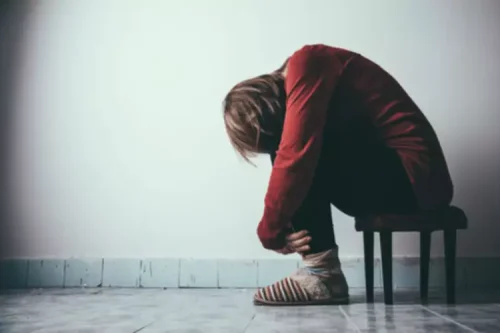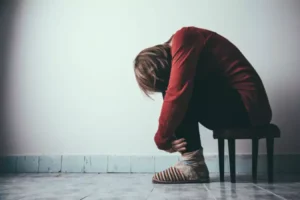Addressing Stigmas That Hinder Addiction Treatment and Recovery Focus

Guilt is often accompanied by a desire to take action or fix the wrongdoing. People that feel unworthy of being helped, or even asking for help, rarely seek professional services on their own, but often they will shame and guilt in recovery seek help for addiction when prompted by family and friends. In dysfunctional families where addictions or codependency is an issue, it is easy for children to see themselves as unloved, unworthy, inferior or even inadequate. In other words, it is not their actions, but their whole being that is the cause of their shame. Constant belittling, criticism and even neglect and isolation all enhance this sense of inferiority and shame that becomes a central part of the individual’s way of seeing her or himself. On the other hand, shame goes beyond just regretting an action; it makes you believe that because of your choices, you are inherently flawed.
- Guilt motivates us to apologize for our transgressions and make amends with those we’ve harmed.
- Shame can make you feel self-conscious and exposed and judged by others.
- Forgiving those who caused pain can also play a role in restoring self-esteem during recovery.
- On the other hand, shame in recovery is a deeply ingrained emotion that makes you feel inadequate or flawed as a person.
Substance Use Treatment
- Furthermore, breaking the cycle of guilt and shame in recovery and reconnecting with family, friends, and coworkers is essential for healing.
- Overcoming these emotions and learning from the relapse is crucial for maintaining motivation and resilience in recovery.
- It’s important to recognize these emotions, as they can be barriers to progress.
- It can sneak its way into your world, grab a hold of things so tight, making you feel drained and burnt out emotionally.
- As a result, feelings of guilt can encourage you to take measures to ensure that you don’t repeat the same mistake in the future.
The sample included 110 sexual minority cisgender men with biologically confirmed recent methamphetamine use, enrolled in a randomized controlled trial in San Francisco, CA. Participants self-reported emotions and recent substance use behaviors over six time points across 15 months. However, it’s crucial to recognize that these negative emotions, while difficult, can be overcome.

Practicing Forgiveness Towards Oneself
Practicing Forgiveness Towards Oneself is a crucial aspect of addiction recovery that deserves attention. It involves exhibiting empathy, kindness, and compassion towards oneself despite past mistakes or shortcomings. Furthermore, developing a strong support system offers multiple benefits such as providing emotional support, reducing stress levels, boosting self-esteem, and increasing accountability. It’s not surprising why people who have access to a solid support system are more likely to achieve their goals and maintain long-term recovery.
Past Behaviors
Shame and guilt can feel like heavy burdens, especially when you’re struggling to overcome addiction. Using dialectical behavioral therapy to treat addiction is very popular and successful. Individuals may hold deep-seated beliefs that they are fundamentally flawed or unworthy, leading to pervasive feelings of shame and self-criticism.
Learn more about South Coast’s approach to rehab

It can make you feel like you’re a failure, unlovable or that you don’t deserve to be happy. It infiltrates your thoughts and makes you think you’re a bad person, or that you’re defective. Breaking the cycle of shame and addiction and severing the link in your life is essential for healing.
Mindfulness and Meditation Practices for Shame and Guilt
If you are in recovery, you have most likely had to confront the heavy feelings of guilt and shame. These emotions will naturally emerge as you progress through therapy, exploring the behaviors you may now regret. Step Four of the 12-Step Program helps you come to terms with past actions that caused others harm in some way.
Once these triggers have been identified, the individual can develop strategies for avoiding them and coping with them when they arise. Ready for even more options when it comes to healing from shame and guilt? Check out our next section on alternative therapies for even more personalized solutions. Our mission is to serve men recovering from substance use disorder and related co-occurring conditions. If it is appropriate guilt, make an effort to change the behavior that causes you to feel the guilt.

Create a list of your values and qualities that you admire about yourself. Remind yourself of these qualities when you start to feel identified by past actions. Each day, write down three things you forgive yourself for and three things you appreciate about yourself. Making amends is one concrete sign to yourself and others that you’re committed to bettering yourself. You must also be open to the possibility that someone will https://ecosoberhouse.com/ not accept your apology.

Seek Professional Help
You may believe that you are fundamentally flawed and unworthy of happiness. Embracing the present moment without judgment or distraction is what mindfulness is about. This practice can be a powerful tool in managing feelings of guilt and shame that often accompany addiction recovery. Shame is the unwanted sensation you did something wrong, making you a bad person. A person feeling shame may not be able to recognize their positive qualities and may view themselves as flawed, dishonorable, or dysfunctional.
Shame and guilt are often used interchangeably but are in fact not the same. While guilt acknowledges negative feelings over an action taken, shame tells you that as a result of this action, you’re not a good enough person. These spaces not only provide emotional support but also offer guided mindfulness activities led by professionals who understand the unique challenges people face during recovery. By choosing forgiveness over resentment, you can regain control over your emotions rather than allowing other people’s behavior to dictate how you feel about yourself.
0 Komentar